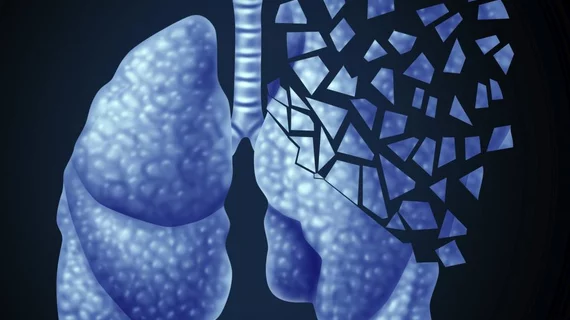Google's AI predicts lung cancer risk as well as radiologists
Researchers at Google have developed a deep learning algorithm that uses data from CT scans to predict a patient’s risk of lung cancer, according to findings published in Nature Medicine.
“Radiologists typically look through hundreds of 2D images within a single CT scan and cancer can be miniscule and hard to spot,” according to a blog post written by Shravya Shetty, MS, one of the co-authors of this research. “We created a model that can not only generate the overall lung cancer malignancy prediction (viewed in 3D volume) but also identify subtle malignant tissue in the lungs (lung nodules). The model can also factor in information from previous scans, useful in predicting lung cancer risk because the growth rate of suspicious lung nodules can be indicative of malignancy.”
The study involved more than 45,000 chest CT exams, and the team validated its results with a second dataset. Results were compared with the performance of six practicing radiologists.
Overall, the algorithm achieved an area under the ROC curve of 94.4% and performed as well as the six radiologists. The team reported a reduction in false positives of 11% and a reduction in false negatives of 5%. When prior CT imaging results were not available, the authors added, the algorithm outperformed the radiologists.
“This work demonstrates the potential for AI to increase both accuracy and consistency, which could help accelerate adoption of lung cancer screening worldwide,” Shetty wrote. “These initial results are encouraging, but further studies will assess the impact and utility in clinical practice.”

